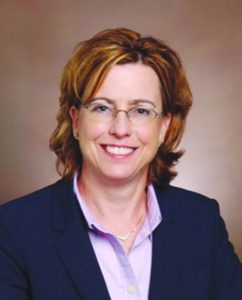Earth In Crisis: The Free Ride
Sometimes On The No. 15, You Get What You Pay For
By Tracey MacDermott
For the GPHN

In August the Regional Transportation District (RTD) offered free fares for the entire month with the goal of reducing pollution and ground level ozone.
Ozone pollution is created from vehicles, gas and oil development, and wildfires. Ozone, also known as smog, is a contributing factor to lung and heart disease. Last year we broke the record for the number of ozone alert days.
Also new on the horizon, this year the Colorado legislature passed a bill to replace highly polluting diesel buses with electric and to implement a system to alert the public about industrial-caused toxic emissions.
These are both good attempts to help clean up the air we breathe, but will the transit-related efforts increase ridership in the short, and long, term, and get people out of their cars and riding along more frequently?
We already know that mass transit can help lower greenhouse gas emissions while improving air quality and easing our congested streets.
However, diesel- and gas-powered buses contribute to dirty air. Each gallon of burned gasoline creates about 20 pounds of greenhouse gases. The vapors burned contain nitrogen oxide and volatile organic compounds that lead to ozone. It is critical that we end the use of fossil fuels both in our private vehicles and the public transportation sector.
Our first investment must be to electrify the bus line. For those of us who live along major corridors, any opportunity to be able to breathe clean air and have less disruptive noise from traffic would be a gift.
Last February, RTD released its customer survey, which ranked fare prices, reliability and frequency of service and route coverage as priorities. Safety did not make the list of top priorities from customers. As a frequent rider of the infamous No. 15 line, I was surprised.
Sure enough, in June, the Colfax line made national headlines. A 3,500-word news feature detailed the horror show that often occurs when riding — and driving the 15.
A Washington Post reporter rode along, highlighting routine stuff he witnessed along the route: violence, including the driver being repeatedly verbally assaulted and abused, riders assaulting one another — including one incident when a guy knocked another guy unconscious and dragged him off the bus.
Beyond just the bus service, the Colfax corridor itself seems to be degrading into a cesspool of graffiti, trash, unauthorized businesses and crime. The homeless crisis has exploded along the route. The street is decaying.
Still, I was thrilled that RTD would be free for a month. As a regular bus rider I didn’t expect my patterns to change much, but was happy that it would potentially encourage others to drive less. I have been riding the 15 and 15L for years and I am no stranger to the adventure of riding the route, though certainly the problems have intensified in the past few years — as the Washington Post so shockingly chronicled in June.
Sure enough, the very first week, I was riding the bus home from the Anschutz Campus during the regular rush hour. My ride was short but it wasn’t uneventful. I noticed the typical spilled drink on the floor, littering of trash from riders, music blasting and a warning: “Don’t sit there, the last person peed on the seat.” Fair enough, just a few miles.
But then things escalated. A passenger was sitting in front of me with numerous bags, skateboard and luggage. Across from him was a man with a chained dog. During a sudden stop, the luggage rolled into man and his dog. The men erupted into a screaming match, complete with threats to kill each other and various weapons brandished. It went on and on.
Other passengers began scurrying off the bus, demanding the back door be opened. Our bus driver was doing the best she could, with little success. I had seen armed guards on this route on previous rides, but there were none there that day.
What kind of city have we become when a short bus ride to work means risking your safety and wishing for armed guards?
For now, I will stop riding the 15/15L. While I appreciate RTD’s August effort to offer free fare to help clean up the air, it is simply is not safe.
If we want people to get out of their cars and on the bus along this corridor — or any other in Denver — we need to focus on cleaning up the city and making it safe for citizens.
We deserve better.
Tracey MacDermott is an at-large member of the board of Greater Park Hill Community, Inc., and immediate past chair. She was trained as a Climate Reality Leader in 2017, and is currently the Statewide Co-Chair of the Climate Reality Project for the 100% Committed Campaign. Contact MacDermott at traceymacdermott@gmail.com.
